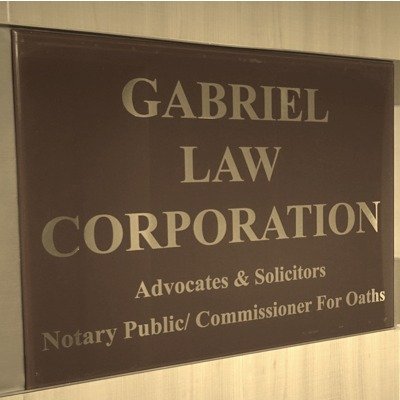Best Employer Lawyers in Raffles Place
Share your needs with us, get contacted by law firms.
Free. Takes 2 min.
List of the best lawyers in Raffles Place, Singapore
Singapore Employer Legal Articles
Browse our 1 legal article about Employer in Singapore written by expert lawyers.
- Corporate Tip – Shareholder’s Agreement
- I started my law firm renting desk space at a very kind lawyer’s office. He was my first boss in Law, Mr Alain A Johns of Alain A Johns Partnership. I was his intern for two months in 2006. We were having coffee one day in late 2017 when I... Read more →
About Employer Law in Raffles Place, Singapore
Employer law in Raffles Place, Singapore, addresses employment-related issues that range from recruitment procedures, wages and benefits, working hours, to termination of contracts and dispute resolution. Singapore's employer law is influenced by a blend of legislation, common law and regulatory guidelines, aiming to balance the rights and obligations of both employer and employee.
Why You May Need a Lawyer
In scenarios where conflicts arise, often an in-depth understanding of legal procedures is required. Situations such as wrongful termination, workplace harassment, issues related to workmen compensation, disputes over wages, benefits or employment contracts' terms, are instances when you may require legal help with employer law. A professional lawyer can help provide insight, represent your case, and navigate you through the complicated legal dilemmas.
Local Laws Overview
The major legislation pertaining to employment issues in Singapore is the Employment Act (EA), which offers a framework governing the relations between employers and employees. It mainly covers terms of employment, pays & conditions of service, complaint proceedings and also outlines employers' responsibilities and obligations. Please note, however, that the EA does not apply to everyone, for instance, seamen, domestic workers, and most managerial or executive positions are excluded.
Frequently Asked Questions
1. Which actions are considered as wrongful termination?
A wrongful termination claim could be made when an employee is dismissed from his/her job in violation of any terms in the employment contract, or the relevant provisions in the Employment Act.
2. What counts as harassment at the workplace?
Any unwelcome act or behaviour like making sexually coloured remarks, physical contact and advances, showing pornography, or making demeaning or offensive jokes can be classified as workplace harassment.
3. How are wages and working hours decided?
The employer determines wages and working hours of employees, but certain minimum standards are laid out by the EA. For example, employees cannot be required to work more than 44 hours per week.
4. Can foreigners work in Singapore?
Yes. However, the employer must have the proper work permits or the employment pass. These permits depend upon certain criteria like qualifications, job type and the workers' nationality.
5. What are the rules about maternity leave?
In Singapore, under the Child Development Co-Savings Act, maternity leave is applicable with certain criteria. It applies to all parents of Singapore Citizen children, with eligibility to 16 weeks if certain criteria are met.
Additional Resources
Additional resources for gaining more insights on employer law in Singapore include the Ministry of Manpower (MOM), Tripartite Alliance for Fair and Progressive Employment Practices (TAFEP), and National Trades Union Congress (NTUC). These organizations frequently publish updates on changes in employment legislation and guidelines.
Next Steps
If you need legal assistance with employer law in Singapore, start by seeking professional legal advice. Lawyers specializing in employment law can provide the required guidance and represent you, if necessary. Further, also consider engaging in mediation or alternative dispute resolution methods that can often lead to agreeable outcomes for both parties.
Lawzana helps you find the best lawyers and law firms in Raffles Place through a curated and pre-screened list of qualified legal professionals. Our platform offers rankings and detailed profiles of attorneys and law firms, allowing you to compare based on practice areas, including Employer, experience, and client feedback.
Each profile includes a description of the firm's areas of practice, client reviews, team members and partners, year of establishment, spoken languages, office locations, contact information, social media presence, and any published articles or resources. Most firms on our platform speak English and are experienced in both local and international legal matters.
Get a quote from top-rated law firms in Raffles Place, Singapore — quickly, securely, and without unnecessary hassle.
Disclaimer:
The information provided on this page is for general informational purposes only and does not constitute legal advice. While we strive to ensure the accuracy and relevance of the content, legal information may change over time, and interpretations of the law can vary. You should always consult with a qualified legal professional for advice specific to your situation.
We disclaim all liability for actions taken or not taken based on the content of this page. If you believe any information is incorrect or outdated, please contact us, and we will review and update it where appropriate.








